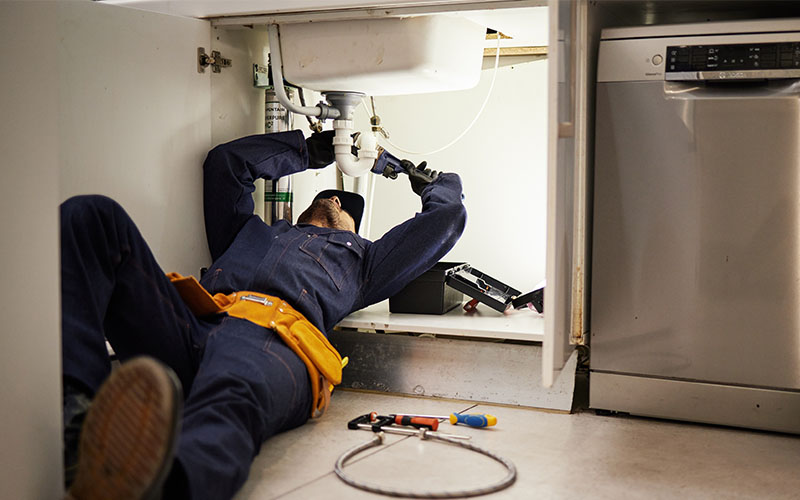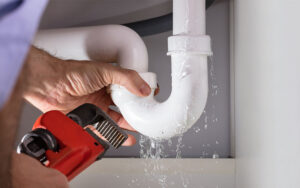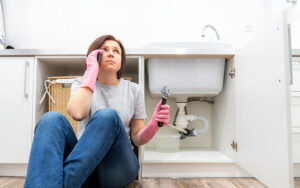If you have ever experienced a plumbing disaster, you know how disruptive it can be. From leaky faucets to burst pipes, plumbing issues can range from minor inconveniences to major emergencies. However, many of these problems can be avoided with proactive maintenance and simple precautions. In this article, we’ll explore effective strategies to prevent common plumbing problems and keep your household running smoothly.
1. Introduction to common plumbing problems
Plumbing problems can manifest in various forms, including leaks, clogs, and water pressure issues. These issues can arise in any part of your plumbing system, from the pipes under your sink to the sewer line connecting your home to the municipal system.
2. Importance of preventing plumbing issues
Preventing plumbing problems is essential for several reasons. First and foremost, it helps you avoid costly repairs and water damage to your property. Additionally, addressing plumbing issues promptly can prevent further damage and ensure the efficient operation of your plumbing system.
3. Regular maintenance tips for preventing plumbing problems
– Checking for leaks
Inspecting your plumbing fixtures and pipes for leaks is a crucial step in preventing water damage. Even minor leaks can lead to mold growth and structural damage over time. Regularly check faucets, toilets, and exposed pipes for signs of leaks and repair them promptly.
– Clearing drains regularly
Clogged drains are a common plumbing issue that can lead to slow drainage and backups. To prevent clogs, avoid pouring grease, coffee grounds, and other debris down the drain. Use drain covers to catch hair and food particles, and periodically flush drains with hot water and vinegar to remove buildup.
– Inspecting water pressure
High water pressure can strain your plumbing system and increase the risk of leaks and burst pipes. Use a pressure gauge to monitor water pressure regularly and adjust it to the recommended level if necessary. Installing a pressure regulator can help maintain consistent water pressure throughout your home.
4. Proper disposal of waste to prevent blockages
Improper disposal of waste can lead to sewer line blockages and backups. Avoid flushing non-biodegradable items like paper towels, feminine hygiene products, and wet wipes down the toilet. Additionally, be mindful of what you pour down the kitchen sink and dispose of grease and food scraps in the trash instead.
5. Protecting pipes during colder months
Frozen pipes are a common winter plumbing problem that can lead to burst pipes and water damage. To prevent freezing, insulate exposed pipes and keep your home’s temperature above freezing, even when you’re away. During particularly cold spells, allow faucets to drip slowly to keep water flowing through the pipes.
6. Importance of addressing small issues promptly
Even minor plumbing issues can escalate into major problems if left unaddressed. Whether it’s a dripping faucet or a running toilet, addressing small issues promptly can prevent water waste and potential damage to your plumbing system.
7. Hiring a professional plumber for thorough inspections
While DIY maintenance can help prevent many plumbing problems, some issues require professional attention. Schedule regular inspections with a licensed plumber to identify potential problems early and address them before they escalate. A plumbing contractor can also provide valuable advice on maintaining your plumbing system and recommend upgrades to improve efficiency and prevent future issues.
Conclusion
By implementing these preventive measures and staying vigilant for signs of trouble, you can minimize the risk of common plumbing problems and ensure the long-term health of your plumbing system. Remember, proactive maintenance is key to avoiding costly repairs and preserving the comfort and functionality of your home.
FAQs (Frequently Asked Questions)
1. How often should I check for leaks?
Regularly inspect your plumbing fixtures and pipes for leaks at least once every few months, and immediately address any leaks you discover.
2. Can I prevent frozen pipes without insulation?
While insulation is the most effective way to prevent frozen pipes, you can also minimize the risk by keeping your home’s temperature above freezing and allowing faucets to drip during cold weather.
3. What should I do if I encounter a stubborn drain clog?
If home remedies like hot water and vinegar don’t clear a stubborn drain clog, consider using a plumbing snake or contacting a professional plumber for assistance.
4. Is it important to hire a licensed plumber for inspections?
Yes, hiring a licensed plumber for inspections ensures that any potential issues are identified accurately and addressed effectively, reducing the risk of future problems.
5. What are the benefits of maintaining consistent water pressure?
Maintaining consistent water pressure helps prevent strain on your plumbing system, reduces the risk of leaks and burst pipes, and ensures optimal performance of your fixtures and appliances.
At Arrow Plumbing Services in Red Deer, we understand the importance of proactive maintenance to prevent common plumbing problems. Our team of experienced professionals is dedicated to helping homeowners safeguard their plumbing systems against leaks, clogs, and other issues. With our expertise and personalized service, we can provide comprehensive inspections, timely repairs, and expert advice to ensure the long-term reliability of your plumbing infrastructure. Trust us to keep your home’s plumbing running smoothly and efficiently.



